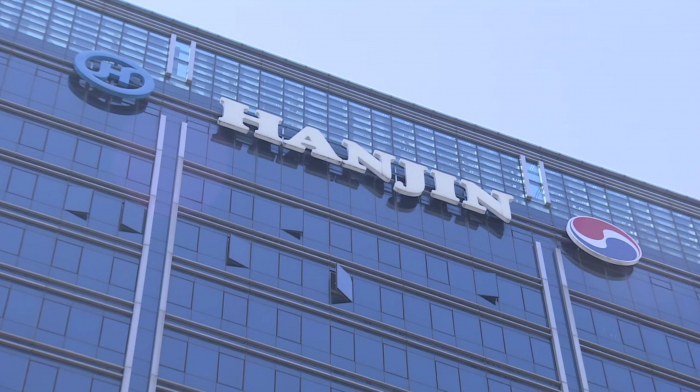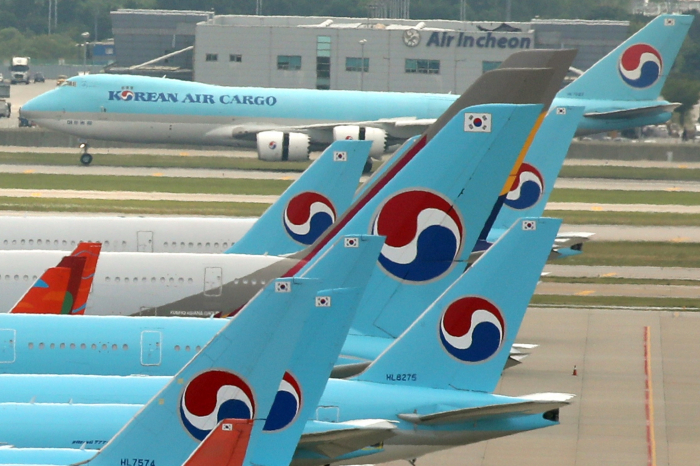Lessons learned from activist fund’s KAL exit
KCGI saw a near-twofold return from Hanjin KAL, but failed to secure control of the company
By Apr 05, 2022 (Gmt+09:00)
LG Chem to sell water filter business to Glenwood PE for $692 million


Kyobo Life poised to buy Japan’s SBI Group-owned savings bank


KT&G eyes overseas M&A after rejecting activist fund's offer


StockX in merger talks with Naver’s online reseller Kream


Mirae Asset to be named Korea Post’s core real estate fund operator



Activist fund Korea Corporate Governance Improvement Fund (KCGI) recently exited its investment in Hanjin KAL Co., the parent company of Korean Air Lines Co., reaping about a twofold return in three years.
The return beat the wider Kospi market that had risen slightly over 30% since November 2018, when KCGI first announced its investment in the holding company of Hanjin Group to become its No. 2 shareholder.
Last month, KCGI sold its 17.41% stake in Hanjin KAL to mid-sized builder Hoban Construction Co. Excluding a call option to buy the remaining 3.44% stake, Hoban paid 564 billion won ($466 million) for a 13.97% stake, or 60,000 won per share. The stock closed at 64,000 won on the last trading day before the announcement.
Investors’ views diverge on the activist fund’s outcome from its headline-making investment in Hanjin KAL, which led to confrontations with the top management and founding family of the conglomerate blamed for poor corporate governance.
Some lauded it as a successful divestment in that KCGI was not in a rush to unload the shares in the market at the maturity of the investment vehicle.
But others downplayed it as a half success. They pointed out that it failed to achieve its goal of ousting Hanjin KAL's top management and securing control of the company.
ERA OF SHAREHOLDER ACTIVISM
When KCGI unveiled its 9% stake in Hanjin KAL back in November 2018, the Korean stock market hailed it as the beginning of shareholder activism in the country.
At the time, Hanjin KAL was the right target for activist funds. Shares of Hanjin Group units were considered undervalued on the back of the group’s aggressive investment in the hotel business and funneling of works to its owner family’s private companies.
Further, at the time Korean Air was in heat over the so-called nut rage scandal. Cho Hyun-ah, its former vice president and the eldest daughter of the late Hanjin Group Chairman Cho Yang-ho, delayed a Seoul-bound flight from New York in 2014 after she raged about the way macadamia nuts were served on board.
That incident ended up with a 10-month suspended jail term for Cho, who is also known as Heather Cho.
In 2018, her younger sister Cho Hyn-min splashed water on a colleague’s face during a company meeting, reopening a national debate about Korean conglomerates’ family-run business system.
Following the death of the group chairman Cho in 2019, KCGI stepped up efforts to boot out his son and Hanjin KAL Chairman Cho Won-tae. Cho was clashing with his two sisters over the management rights of the company.

While increasing its ownership in Hanjin KAL, KCGI in 2000 joined hands with Bando Engineering & Construction Co. and Heather Cho to challenge the incumbent management led by her brother, also known as Walter Cho.
However, KCGI's efforts fizzled out in the face of the government-led combination of Korean Air and Asiana Airlines Inc. to help the pandemic-hit airlines keep afloat.
In 2020, state-run Korea Development Bank (KDB) emerged as a major shareholder of Hanjin KAL by purchasing new shares issued by Hanjin KAL and endorsed the existing top management.
A Seoul district court cleared the way for the share placement to KDB, dismissing KCGI’s request to block the share issuance.
Forming a three-way coalition with Bando, a mid-sized builder with lower corporate governance scores than Hanjin, also put a dent in KCGI's reputation.
As the vehicle that invested in Hanjin KAL was coming due, KCGI was forced to distribute compound annual returns of more than 8% to investors, coupled with 18 billion won in interest payments per year.
KCGI said it chose Hoban as the buyer who would support Hanjin’s development and keep its management in check.
It first tapped Bando, the No. 3 shareholder of Hanjin KAL with a 17.02% stake, but switched to Hoban, which made an attractive proposal.
"It might be an honest explanation to say they found a buyer who was willing to pay 60,000 won per share," an investment banking source told The Korea Economic Daily.

KCGI also faced criticism for failing to make clear its investment strategy: targeting Hanjin KAL's management rights or exercising an influence as a minority shareholder.
Taking into consideration its loss of reputation during the three-year investment period, some market observers said the return from Hanjin KAL might just match that of index funds.
KCGI's participation in a consortium to buy debt-ridden Ssangyong Motor Co. also raised investors' eyebrows. It finally dropped out of the group that failed to make the full payment by the deadline last month.
“Even though it reaped nearly a twofold return in three years, I'm wondering how many investors will support its next campaign,” said another investment banking source.
Meanwhile, industry watchers say Hoban Construction holds a casting vote over Hanjin KAL.
If the new shareholder sides with Chairman Cho, the current leadership will be able to control a combined 56.1% of the holding company, with the backing from two other friendly shareholders KDB and Delta Airlines Co.
Write to Jun-Ho Cha at chacha@hankyung.com
Yeonhee Kim edited this article.
-
 Mergers & AcquisitionsKorean activist fund KCIG to sell Hanjin KAL stake to local builder
Mergers & AcquisitionsKorean activist fund KCIG to sell Hanjin KAL stake to local builderMar 28, 2022 (Gmt+09:00)
2 Min read -
 Mergers & AcquisitionsKorean activist fund KCGI joins in consortium to buy Ssangyong
Mergers & AcquisitionsKorean activist fund KCGI joins in consortium to buy SsangyongAug 09, 2021 (Gmt+09:00)
2 Min read -
 Local activist fund KCGI opposes Korean Air's sale of in-flight businesses
Local activist fund KCGI opposes Korean Air's sale of in-flight businessesJul 17, 2020 (Gmt+09:00)
3 Min read


